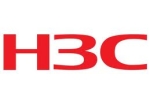We primarily use the solution for connectivity purposes.
If you want to connect your network, you definitely need a switch for end-to-end connectivity. The good thing about Aruba switches nowadays is that these particular switches also can be managed through the cloud. You can manage it through the cloud, you can manage it to NMS, and you can manage it to the individual switch also. You can manage it as a cluster.
We like that it is very easy to manage the product through the cloud.
If you compare Aruba to other switches like Juniper, Aruba has constantly maintained a Gartner leadership position over the last ten years.
Aruba is a very, very powerful switch in terms of the modular operating system.
It has sensor-based analytical tools.
They have this multi-tier operative system to manage the data center environment or campus Wi-Fi, et cetera. Whatever the Aruba access point, the Wi-Fi device, and the Aruba switches, are both on a common platform. They have dynamic segmentation. The connectivity and the management are very easy as it is centralized.
There is a whole product range to choose from. They have a huge portfolio, from 1GB all the way up to 100GB. It offers a wide variety of variations.
The user interface is very good.
There are a lot of great features, like dynamic segmentation and a modular operating system, that users can take advantage of.
Aruba switches are a new generation of switches that allow each access point to carry different user data and have the capability of handling different policies. They can prioritize traffic based on policy or an IP address range, for example. If I have my own device and my work device on the same network, the permissions can be set differently so that my work device has certain access and my home device does not. Or I can request permission for my home device. It can pick up and adjust for authorized and non-authorized users.
Their hardware has been completely redesigned and has stringer processors and all kinds of different improvements.
They offer good DRAM and can support a multi-gig PoE.
There is multi-tier architecture within the switch itself.
Aruba is still losing out to Cisco, which continues to dominate the space. Aruba needs to continue to improve its product range in order to compete with Cisco's dominance.
I've used the solution for five to six years.
The stability of Aruba is very high. It's very reliable. It doesn't crash or freeze. There are no bugs or glitches. I can rate the product nine or ten out of ten in terms of stability.
The solution is scalable in two ways. You can increase your network with the device, and you can also upgrade your application operating system to increase the usage of new-generation technology. Aruba is great at offering scalability in both areas. The devices also last a long time and have a five or six-year lifetime warranty, and within this period, you're eligible for the latest software that continuously expands the Aruba experience over time.
We'll likely continue to invest in Aruba and expand usage when the time comes.
Technical support is very good. There is a default lifetime for R&D and it will give you only the troubleshooting and support for the lifetime of the product. That troubleshooting support will identify either if your switch has a hardware fault or if it has any other issues. If it has been diagnosed that it is a software-related issue, they will give you the latest format to upgrade to. However, if you go for the full level of technical support, so you have to purchase the Aruba service agreement. This is called Foundation Care.
If you don't go with any support, you are only eligible for the hardware replacement. No other support will be provided.
I previously worked with Huawei. That was three or five years ago. I've also worked with HPE as well as the entire Aruba product range. I'm aware of Cisco and Juniper's capabilities as well.
Aruba is considered a premium product and therefore the pricing is quite high. That said, it is competitive against, for example, Cisco. Based on its vast service offering, the pricing is actually quite fair.
We've compared Aruba to many switches, including Cisco and Juniper. However, Cisco is more comparable and Juniper has a very limited product profile. Cisco and Aruba are very similar.
We are not a reseller. We are the national distributor of Aruba in India.
I'd rate the product in general eight out of ten. If a company is looking for a future-proof solution, Aruba really is a good choice. If they are looking to build a very sophisticated network, it's great.



















